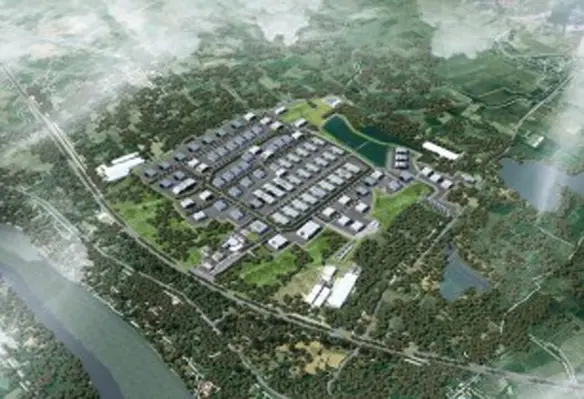Thai property investment and development company Singha Estate PCL has signed a definitive agreement to acquire from Boon Rawd Brewery Co., Ltd., 100% of the shares of Park Industry Co., Ltd., which owns the 286-hectare World Food Valley industrial estate in Ang Thong province in Central Thailand
The share transfers are expected to take place in Q3 2021.
The transaction’s total value is approximately US$77.8mn, comprised of US$16.4mn for the entirety of Park Industry’s shares, priced at par value, and a commitment to invest a further US$55.5mn in the development of the industrial estate, as well as other costs.
Chutinant Bhirombhakdi, chairman of the board of directors of Singha Estate PCL, said, “Acquiring an industrial estate that is closely linked to the three power plants in which we have also taken substantial stakes is another step forward in the fulfilment of our strategy to create powerful synergies between Singha Estate’s multiple business platforms. It gives us great competitive strength as well as creates a highly resilient business.”
Thitima Rungkwansiriroj, CEO, Singha Estate PCL, said, “The combination of an industrial estate business and a power generation business creates significant financial and operational benefits because industrial estates are one of the largest consumers of power. The operations inside the industrial estate create demand for the power generated by our three power plants. And, because this industrial estate is focussed on food, there will be demand by food processors for the food-grade steam that our power plants also produce. At the same time, the power plants boost our recurrent income and give us steady cashflow that reduces risks in cashflow fluctuation from sales of industrial estate land.”
“Apart from being a great strategic fit, we see strong prospects in the industrial estate sector in Central Thailand. The average occupancy rate of industrial estates in Thailand was approximately 80% at the end of last year, while the Central region enjoyed the highest occupancy rate at about 89%,” she added.
“This industrial estate is also at the heart of Thailand’s drive to be a ‘kitchen of the world’ as well as one of the world’s top food producers. The location is highly strategic for those operating in the food sector because it is in the middle of the country’s food and raw material supply chain for rice, dairy products, and poultry. It also has access to abundant supplies of water because of its proximity to the Chao Phraya River,” she further added.
The Thai government has been supporting the development of the food processing sector as part of its long-term policies. According to Thailand’s Board of Investment, applications for investment privileges in the agriculture and food sectors were one of the fastest growing, and Thailand’s Central region accounted for around half of all Board of Investment applications in 2020.
The demand for land in industrial estates in Thailand is forecast to increase once COVID-19 related foreign travel restrictions are eased.




